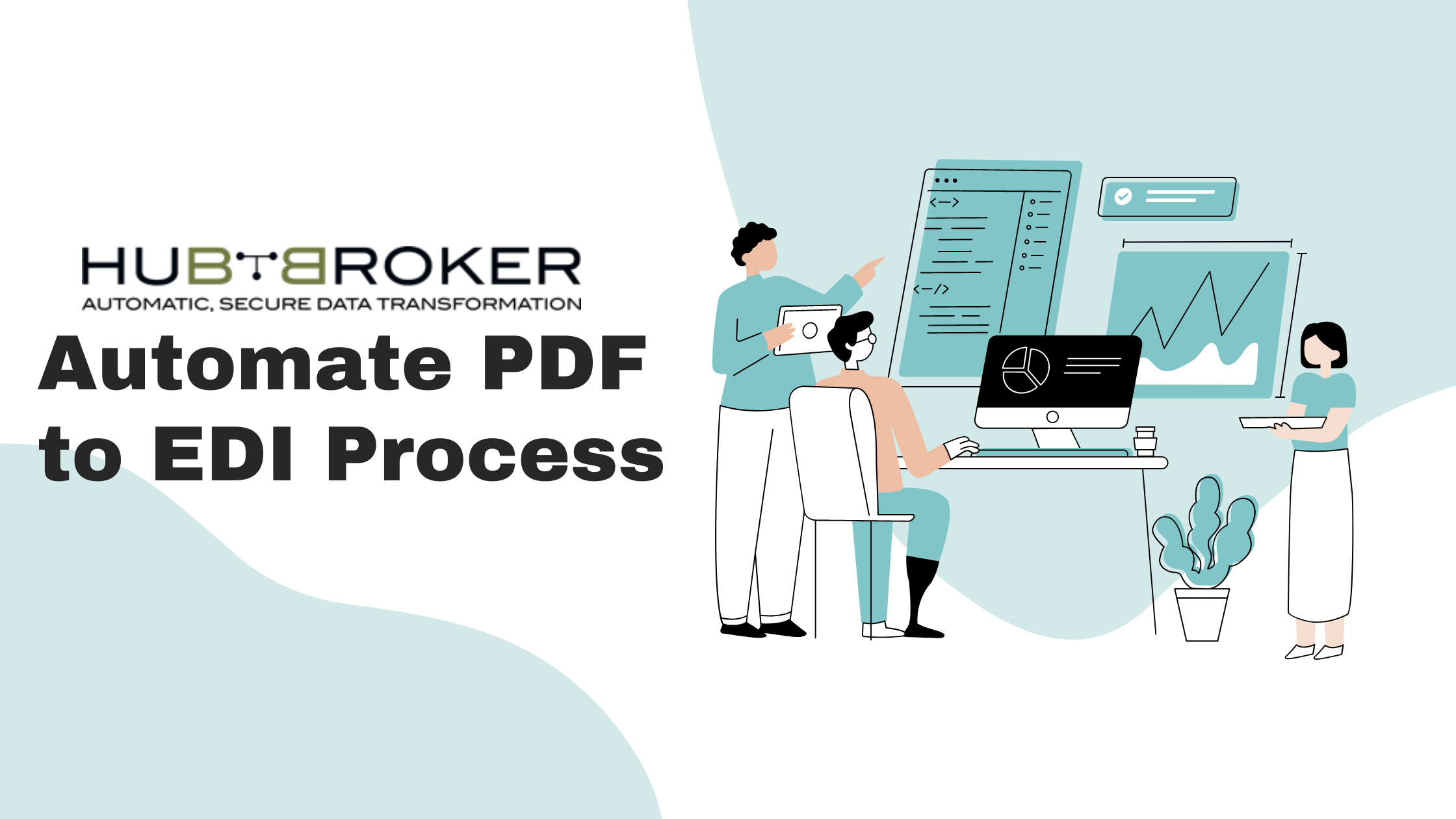Why EDI is essential for retail businesses
In the ever-evolving landscape of retail, businesses face increasing pressure to improve efficiency, reduce costs, and meet the growing expectations of consumers. One of the key technologies enabling retailers to achieve these goals is Electronic Data Interchange (EDI). As a leading provider of EDI solutions, HubBroker understands the critical role EDI plays in the modern retail ecosystem. This article explores why the need for EDI is growing in retail and how it is transforming the industry.
Benefits of EDI in the Retail Industry
The retail industry is undergoing a profound digital transformation. With the rise of e-commerce, omnichannel strategies, and the integration of advanced technologies such as artificial intelligence and machine learning, retailers are required to manage vast amounts of data more efficiently. EDI, which facilitates the electronic exchange of business documents in a standardized format between trading partners, is at the heart of this transformation.
Enhancing Operational Efficiency
One of the primary reasons for the growing need for EDI in retail is its ability to significantly enhance operational efficiency. Traditional paper-based processes are time-consuming, error-prone, and costly. EDI eliminates these issues by automating the exchange of documents such as purchase orders, invoices, shipping notices, and inventory updates. This automation reduces manual data entry, minimizes errors, and speeds up transaction times, leading to faster order processing and improved supply chain efficiency.
Cost Reduction
Cost reduction is a critical driver for the adoption of EDI in retail. By automating document exchange, retailers can reduce administrative and operational costs associated with manual processing. For example, the costs of printing, mailing, and storing paper documents are eliminated. Additionally, the reduction in errors and faster processing times lead to lower labor costs and fewer expenses related to order discrepancies and returns. The initial investment in EDI technology is quickly offset by these savings, making it a financially sound choice for retailers.
Improved Accuracy and Data Integrity
Accuracy and data integrity are paramount in retail operations. Errors in order processing, inventory management, and invoicing can lead to significant disruptions, financial losses, and damage to customer relationships. EDI ensures that data is transmitted accurately and consistently between trading partners. Standardized formats and automated processes minimize the risk of errors caused by manual data entry and interpretation. This leads to more accurate inventory levels, timely deliveries, and precise billing, ultimately enhancing customer satisfaction and loyalty.
Real-Time Data Exchange
In today’s fast-paced retail environment, the ability to access and share real-time data is crucial. EDI enables retailers to exchange information with suppliers, distributors, and other partners in real-time. This real-time data exchange provides visibility into inventory levels, order status, and shipment tracking, allowing retailers to make informed decisions and respond quickly to market changes. For example, if a product is out of stock, real-time data can trigger automatic reorder processes, ensuring that shelves are always stocked with the right products.
Facilitating Omnichannel Strategies
The rise of omnichannel retailing, where customers interact with brands through multiple channels such as online stores, mobile apps, and physical stores, has added complexity to retail operations. EDI plays a crucial role in facilitating omnichannel strategies by ensuring seamless integration of data across all channels. With EDI, retailers can synchronize inventory levels, manage orders from various channels, and provide a consistent customer experience. This integration is essential for meeting the expectations of today’s consumers, who demand convenience and consistency regardless of how they choose to shop.
Compliance with Industry Standards
The retail industry operates within a framework of stringent regulations and standards. Compliance with these standards is essential for maintaining smooth operations and avoiding penalties. EDI supports compliance by adhering to industry-specific standards such as ANSI X12, EDIFACT, and others. These standards ensure that the exchanged data meets the required specifications and can be processed correctly by all parties involved. By using EDI, retailers can streamline their compliance efforts and reduce the risk of non-compliance.
Strengthening Supplier Relationships
Effective collaboration with suppliers is crucial for retail success. EDI strengthens supplier relationships by enabling efficient and transparent communication. With EDI, retailers can send purchase orders, receive order acknowledgments, and track shipments seamlessly. This transparency helps build trust and reliability between retailers and suppliers, leading to improved collaboration and better terms. Moreover, the automation of routine transactions frees up resources to focus on strategic initiatives and relationship-building activities.
Scalability and Flexibility
As retailers grow and expand into new markets, their operations become more complex. EDI offers the scalability and flexibility needed to support this growth. Whether a retailer is dealing with a few suppliers or hundreds, EDI can handle the increasing volume of transactions without compromising efficiency. Additionally, EDI solutions can be customized to meet the unique needs of different retailers, providing the flexibility to adapt to changing business requirements and market conditions.
Conclusion
The growing need for EDI in retail is driven by the industry’s ongoing digital transformation, the demand for operational efficiency, cost reduction, and the need for accurate, real-time data exchange. As retailers adopt omnichannel strategies and navigate complex regulatory environments, EDI emerges as a critical enabler of seamless integration, compliance, and collaboration. HubBroker, with its expertise in EDI solutions, is well-positioned to help retailers harness the full potential of EDI, ensuring they stay competitive in a rapidly evolving market. Embracing EDI is not just a technological upgrade; it is a strategic imperative for retailers aiming to thrive in the digital age. Book a Demo!





